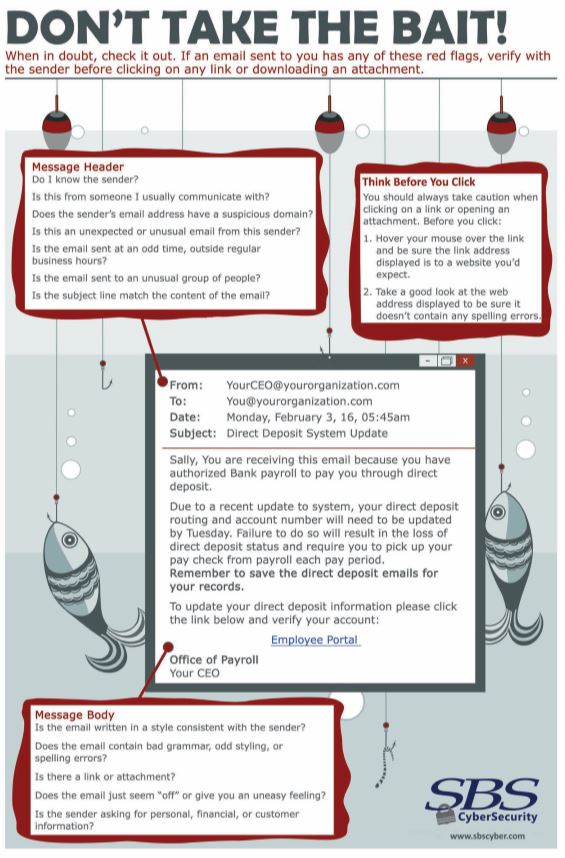
ID Theft Prevention Information
To protect yourself against Identity Theft or to learn more, go to the Federal Trade Commission's Information.
Your safety is important to us. Below are some best practices to keep your online information secure.
Protect Yourself:
- Establish strong passwords
- Use length and complexity. Avoid using personal information in the password. For example, don’t use your name and birth date.
- Include at least one number.
- Include at least one capital letter.
- Include at least one symbol.
- Recommended minimum of 12 characters in length for strong passwords, and 15 characters for highly confidential sites.
- Other best practices
- Make sure your computer is actively protected.
- If you receive a one-time passcode that you didn't initiate, do not provide the code to anyone that contacts you requesting it.
- Use different passwords for different accounts.
- Never share your password with anyone else, including a supervisor or IT specialist.
- Never use a public computer (hotel, library, etc.) to log into an account.
- If you write down your password, be sure to store it in a secure location, never in public view.
Online and Computer Security
- Protect your privacy. Be cautious about posting personal information such as date of birth, phone number, email address, home address, etc.
- Protect your online reputation. A lot can be said about pictures and posts, so don’t put anything up that could be misleading.
- Remember, once it’s online, it’s there for the whole world to see.
- Back up all your information on an external hard drive, CD, DVD, or USB flash drive.
- Clear all personal data from your computer before donating or disposing of it. Manually deleted computer files can still be recovered, so contact the computer manufacturer’s technical services department and ask how to properly delete personal files.
For more tips on on-line security, go to the United States Government site: http://www.us-cert.gov/ncas/tips/
Mobile Device Safety Tips
It is important to keep your mobile device updated and secure.
Consider the following:
-Stay current with operating systems and firmware updates. Performing updates on your devices provides you with the latest software enhancements to assist with keeping your device safe and secure.
-Locking your device---enabling the locking features on your mobile device. Features such as PIN protection or Touch-ID protection provides an additional layer of security to keep your device safe and secure.